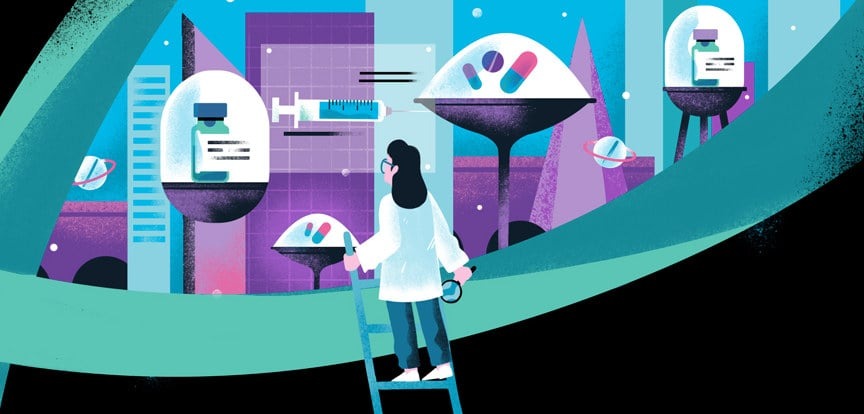Biotechnology has been at the forefront of medical advancements, continuously pushing the boundaries of what is possible in healthcare. In this article, we will explore the latest developments in biotechnology within the medical field and look ahead to the future trends that hold the promise of transforming healthcare as we know it.
Advancements in Personalized Medicine
Genetic and Genomic Medicine
One of the most exciting areas in biotechnology is genetic and genomic medicine. Recent breakthroughs have made it possible to sequence an individual’s entire genome quickly and at a lower cost. This wealth of genetic information allows healthcare providers to tailor treatments and medications to a patient’s specific genetic makeup, increasing the efficacy of therapies while minimizing potential side effects.
Targeted Therapies
Biotechnology has paved the way for targeted therapies, which focus on specific molecular pathways involved in diseases such as cancer. These therapies are more precise and less harmful to healthy cells, leading to better treatment outcomes and improved quality of life for patients.
The Rise of Immunotherapy
CAR-T Cell Therapy
Immunotherapy, particularly CAR-T cell therapy, has gained prominence in recent years. This revolutionary treatment involves modifying a patient’s own immune cells to target and destroy cancer cells. CAR-T cell therapy has shown remarkable results in treating certain types of leukemia and lymphoma, offering new hope to patients with previously limited treatment options.
Checkpoint Inhibitors
Checkpoint inhibitors, another form of immunotherapy, have demonstrated effectiveness in treating various cancers by blocking the mechanisms that allow cancer cells to evade the immune system. This approach has shown long-lasting responses and fewer side effects compared to traditional treatments like chemotherapy.
Artificial Intelligence in Drug Discovery
Drug Repurposing
Artificial intelligence (AI) and machine learning have begun to play a significant role in drug discovery. AI algorithms can analyze vast datasets to identify existing drugs that could be repurposed for new therapeutic uses. This approach accelerates the development of treatments for various diseases, including rare and neglected ones.
Predictive Modeling
AI-driven predictive modeling helps researchers identify potential drug candidates more efficiently. By simulating drug interactions and predicting their efficacy, scientists can prioritize the most promising compounds for further development, saving time and resources.
The Emergence of Telemedicine
Remote Monitoring
Telemedicine has seen substantial growth, especially in response to the COVID-19 pandemic. Remote monitoring devices, wearable technology, and telehealth platforms allow patients to receive healthcare services from the comfort of their homes. This trend is expected to continue, improving access to care and reducing healthcare costs.
AI-Powered Diagnostics
Telemedicine is also benefiting from AI-powered diagnostic tools that can analyze medical images, such as X-rays and MRIs, with high accuracy. These tools help healthcare providers make quicker and more accurate diagnoses, particularly in regions with limited access to specialists.
Challenges and Future Prospects
Ethical Considerations
As biotechnology advances, ethical considerations become increasingly important. Issues such as data privacy, genetic manipulation, and equitable access to emerging treatments require thoughtful regulation and ethical guidelines.
Regulatory Frameworks
Developing robust regulatory frameworks that can keep pace with rapidly evolving biotechnologies is crucial. Ensuring the safety and effectiveness of novel treatments while facilitating innovation is a delicate balancing act.
Access and Affordability
While biotechnology has the potential to revolutionize healthcare, ensuring that these advancements are accessible and affordable to all patients worldwide remains a significant challenge. Bridging healthcare disparities is a critical goal for the future.
Conclusion
Biotechnology continues to reshape the landscape of medicine, offering hope for more effective treatments, improved patient outcomes, and a deeper understanding of diseases at the molecular level. From personalized medicine and immunotherapy to AI-driven drug discovery and telemedicine, the latest developments in biotechnology hold immense promise. However, addressing ethical concerns, establishing regulatory frameworks, and ensuring equitable access to these innovations are essential steps to realizing the full potential of biotechnology in medicine. As researchers and healthcare providers continue to collaborate and innovate, the future of medicine looks brighter than ever.
